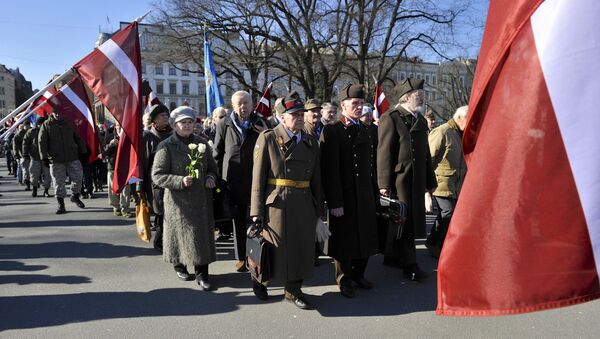Alexander Dyukov, the head of Russia's Historical Memory Foundation and one of the researchers behind the study to establish the names of the former legion members, stated that during the Great Patriotic War in the Soviet Union, units of the Latvian Legion committed a range of crimes that can be qualified as war crimes and crimes against humanity. In particular, the legion killed civilians in the Russian villages of Zhestyanaya Gorka and Chernoye.
Currently, over 400 former legionaries are living in Latvia and abroad.
The research established that out of the 96 former legion members, 32 live in the United States, 21 in Latvia, 19 in Australia, 15 in Canada, four in the United Kingdom, three in Brazil, and two in Argentina, Dyukov explained.

After the war, the former legionaries formed a nationalist organisation dubbed Daugavas Vanagi.
Despite the crimes that members of the legion conducted during the war, the Latvian authorities have provided support, including financial assistance, to the organisation and its members, according to Dyukov.
Some 140,000 Latvian members of the legion are believed to have fought against the Soviet Union on the side of Nazi Germany during World War II. The SS, as well as other Nazi organisations, such as the Gestapo, SD, and SA, were outlawed as criminal following the Nuremberg trials.


